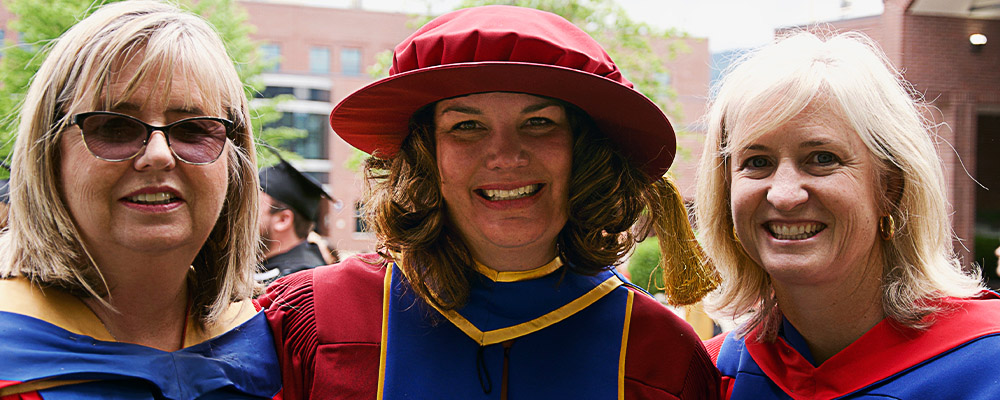
Congratulations to Dr. Jennifer Kelly who graduated with her PhD in June 2019!
Jennifer is a district literacy specialist in the North Okanagan-Shuswap School District (School District 83) in Salmon Arm. For more than 20 years, she has been teaching in a number of different capacities; including courses in early reading behaviour at Thompson Rivers University and at the Okanagan School of Education.
Her passion for teaching students to read created a belief that literacy can change a student’s life trajectory.
Question and Answer Session with Jennifer
What was your research project?
My case study examined the professional learning experiences of ten teachers engaged in a provincially-developed professional learning community (PLC) over a period of two years, that was formed as part of the Changing Results for Young Readers (CR4YR) British Columbia provincial initiative.
I found that teachers can engage in wholistic professional learning, which involves experiences connecting the mind and heart while learning in relation to others. I suggest that teacher professional learning ought to focus on providing time for professional to develop learning relationships, encourage teachers to theorize, and allow on-going learning experiences for teachers.
What difference do you hope your research will make?
I’ve noticed in my teaching practice and witnessed in my colleagues, professional learning is an area of attention that can add sustenance to teaching. It can be one of the things that develops excitement and engagement in teaching. It can reinvigorate or simply be one of the areas of teaching that allows teachers to survive a complex role.
I know that professional learning can be all those things, but there is no recipe to follow to ensure teachers are motivated to participate and that the learning experiences are relevant, valuable, and meaningful. In my role (in the district), it is very important to me to create conditions for teachers’ learning that are impactful to each teacher personally and professionally.
This urgent need to work with teachers in ways that not only increased their knowledge, but their professionalism led me to this research to further understand how teachers are experiencing learning.
My fondest hope is that my research will contribute to the elevation of the role of a teacher to one of deep admiration and value.
What advice do you have for future graduate students?
- Be open to other perspectives and alternate ways of thinking about research.
- Read, read, read, and then read some more.
- Set a schedule for writing and talk about your research as much as possible with anyone who will listen.
- Enjoy the process and celebrate every little accomplishment along your journey.
Learn more about her research by reading her thesis: Teaching professional learning: focusing on a wholistic experience linking the mind and the heart through relational learning.